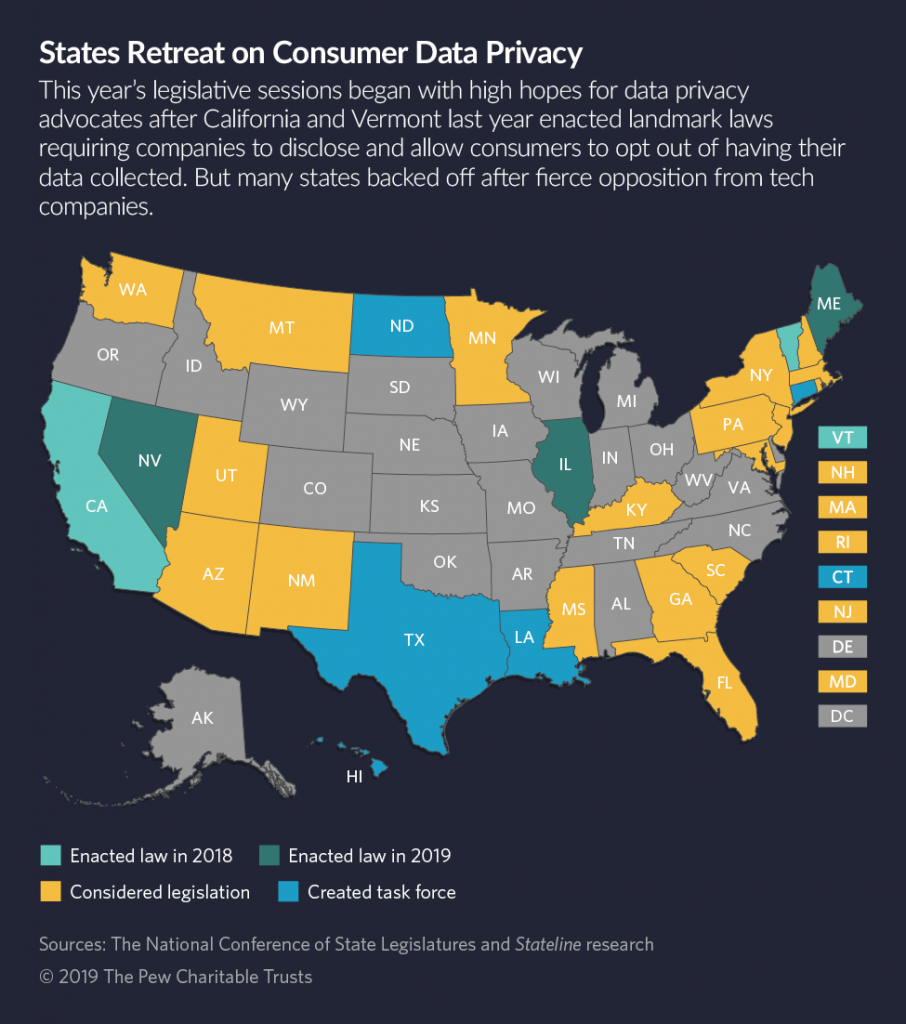The idea of “breaking up big tech” has generated an uptick in curiosity around the size and power of major tech platforms Facebook, Google, Amazon and Microsoft. These companies increasingly find themselves under multiple microscopes, including:
- The U.S. Department of Justice (DOJ), which has taken an interest in revisiting a 1996 law that shields online platforms from liability and holds individuals responsible for the content they post;
- the Federal Trade Commission (FTC), which is reviewing past acquisitions;
- state attorneys general, which are investigating possible antitrust violations;
- as well as political power players and the American public.
Public opinion surrounding the push to break up these companies is complex and riddled with opposing wants and needs. A Pew Research study conducted in mid-2019 found that 81 per cent of Americans believe that the risks posed by tech companies’ collection of personal data outweigh the benefits of the platforms.
Since the onset of the coronavirus pandemic, big tech has emerged as a strong ally in the fight against coronavirus, helping to inform and connect the public, as well as develop a system for contact tracing. They are also donating personal protection equipment, working with hospitals to share and analyze data, and providing computing capabilities to researchers.
Facebook is removing harmful disinformation and can help to map the spread of the virus, Google has made changes to their platforms to assemble critical information for the public, Amazon is assisting with the logistics of at-home testing and has proven an indispensable online retailer, and Microsoft is delivering capabilities for online learning and remote working.
As part of the solution, big tech companies can rebuild trust and lay the groundwork for Americans to embrace the power of data to solve the world’s largest and most intractable problems. Privacy will return to the foreground, but the major tech players will be part of the conversation rather than the object of it.
Public perception seems to be changing too; Americans are becoming more willing to relinquish their privacy if it helps to defeat the pandemic. Politically the winds are changing too. Presumptive Democratic nominee for President, former Vice President Joe Biden has been quiet about tech companies’ size and influence. His more vocal rivals, Senators Bernie Sanders and Elizabeth Warren, have fallen by the wayside. Biden may adopt more progressive policies to win over younger more left-wing voters, but it is unclear whether he will fully concede to their outspoken support to unwind mergers and break up tech giants.
Some states, such as California and Vermont, rushed to enact landmark data privacy laws to protect consumers, with others following suit in 2019. Inaction on the federal level is setting up a Constitutional question over States’ and consumer rights. A question that will not be resolved, and may even hinge on, the results of the 2020 presidential election. Those looking to reign in big tech companies are dependent on the slow-moving machinery of the DOJ and the FTC.

President Donald Trump has distanced himself from the debate over technology companies, except when it concerns China, but Republicans have also voiced opposition to these companies. Senator Josh Hawley (R-MO) is leading his party’s charge against big tech with some bipartisan support from Sens. Markey (D-MA), Feinstein (D-CA) and Warner (D-VA). Politically there appears to be some movement around strengthening privacy protections, relinquishing control of data collection to consumers, and accountability for content on platforms.
While many aspects of big tech regulation are consequential and are set to continue through 2020 onward, the most pressing and time-sensitive issues are shaping up to include building trust in online information and security, the 2020 election cycle and defining the limits of consumer privacy during the coronavirus pandemic and after. The election will shine a light on big tech companies and these issues; the pandemic will show that they can be part of the solution.

